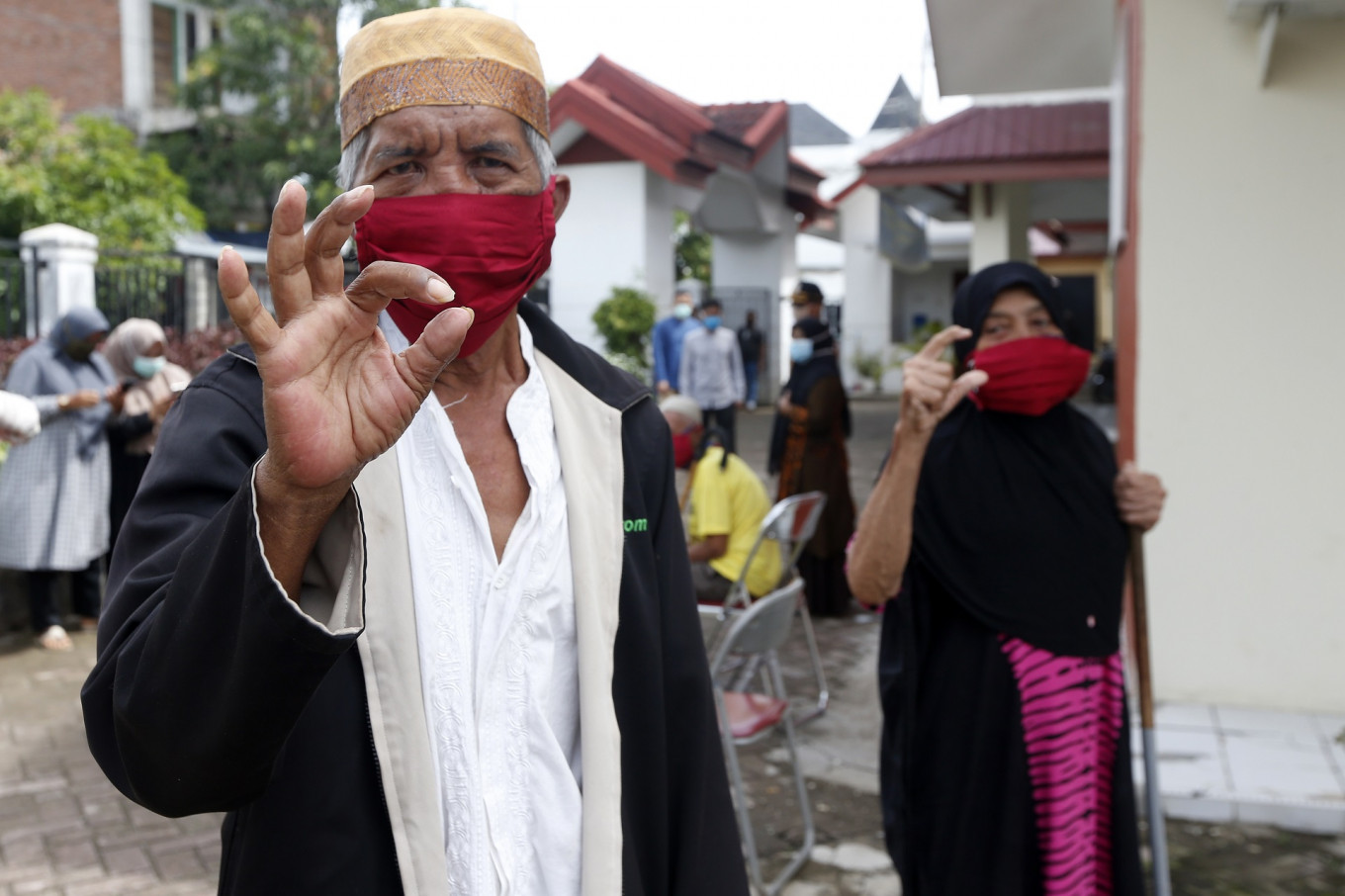Old problem spells doom for Komnas Lansia
Prior to its disbandment, the Komnas Lansia had been struggling to stay afloat.
Change Size

T
he absence of a fresh mandate appeared to be the last nail in the coffin for the Commission for the Elderly (Komnas Lansia), with the government finally deciding to dissolve the government-sanctioned body.
The commission was among 10 agencies founded by either a presidential regulation or a presidential decree that were disbanded by President Joko "Jokowi" Widodo last week as part of his debureaucratization efforts.
Prior to its disbandment, the commission had been struggling to stay afloat.
Former commissioner Adhi Santika said Komnas Lansia had been brought to a virtual standstill in early 2015, particularly as President Joko “Jokowi” Widodo did not renew the expiring decree for its commissioners nor issued a new decree to appoint new commissioners.
“The last presidential decree to appoint new commissioners was issued in 2012. According to the decree, their terms ended in [late] 2014. So, technically, since 2015, Komnas Lansia did not have any commissioners,” Adhi said in a press conference on Tuesday.
Komnas Lansia was established by the government in 2004, two years after Indonesia signed the 2002 Madrid International Plan of Action on Ageing (MIPAA), a global initiative aimed at tackling the issue of aging in the 21st century. The Madrid plan focuses on ensuring social protection, enabling a supportive environment for the elderly and advancing health and well-being into old age.
The commission was tasked with helping the President draft policies and coordinate efforts to improve the well-being of the country’s elderly citizens.
According to Adhi, the commission helped formulate the senior citizens' welfare bill, which has been in the hands of lawmakers for nearly a decade but deliberations have been moving at a snail's pace.
When Komnas Lansia went dormant, some experts were quick to urge the government to reactivate the commission, citing difficult coordination between the central government, local administrations and civil society organizations on programs for the elderly.
The central government, however, deemed the commission "ineffective", with Administrative and Bureaucratic Reform Minister Tjahjo Kumolo saying its tasks overlapped with the Social Affairs Ministry’s social services and rehabilitation directorate general, leading the President to disband it.
Adhi said it was almost impossible for a single ministry to handle all issues related to the elderly due to their complex nature.
“Many elderly people, especially in remote areas, do not have access to health facilities, an issue under the jurisdiction of the Health Ministry, and some elderly women experience domestic or sexual abuse, meaning they might need the assistance of the Women Empowerment and Child Protection Ministry,” he said.
“The problems they are facing are very complex and require collaboration from various ministries, so having a state body to coordinate the efforts is very essential.”
Civil groups advocating elderly rights expressed the same sentiment and demanded that the disbandment of Komnas Lansia be annulled. They also urged the government to revitalize the agency by giving it more independence and authority.
“The role of the commission is very vital considering the fulfillment of the elderly’s basic rights is still far from ideal,” said Khotimun Susanti of the Legal Aid Foundation of Indonesian Women's Association for Justice (LBH APIK), one of the few leading organizations campaigning for the elimination of violence against women and children.
Khotimun said the elderly, particularly women, often experienced domestic abuse but have very limited access to legal assistance.
LBH APIK found at least 72 cases of violence against the elderly in three provinces during the 2019-2020 period, including neglect, psychological abuse, physical abuse, sexual abuse, exploitation and the confiscation of their assets. It suspects that more cases go either underreported or completely unreported.
“Abuse cases mostly take place behind closed doors and are unreported. So, it's very hard to find reliable and comprehensive data,” she said.
Mistreatment of the elderly has become a serious social problem that is hidden from public view, not just in Indonesia, with the United Nations saying it remained one of the least investigated types of violence in national surveys across the world.
According to UN data, one out of six elderly people experienced some form of abuse in the past year or around 141 million people worldwide. It also found that mistreatment of the elderly was one of the least-addressed problems in national action plans.
The global population of people aged 60 years and older is set to more than double from 900 million in 2015 to 2 billion by 2050. The growth will be faster in developing regions, the UN has said.
Data from Statistics Indonesia (BPS) shows that in 2019, the country was home to 25.9 million people above 60 years of age or around 9.7 percent of the total population.
This means Indonesia has entered the aging population phase, which is marked by having an elderly population that accounts for 7 percent or more of the total population. The number is predicted to rise to 48.2 million, or 15.7 percent of the population, by 2035.









